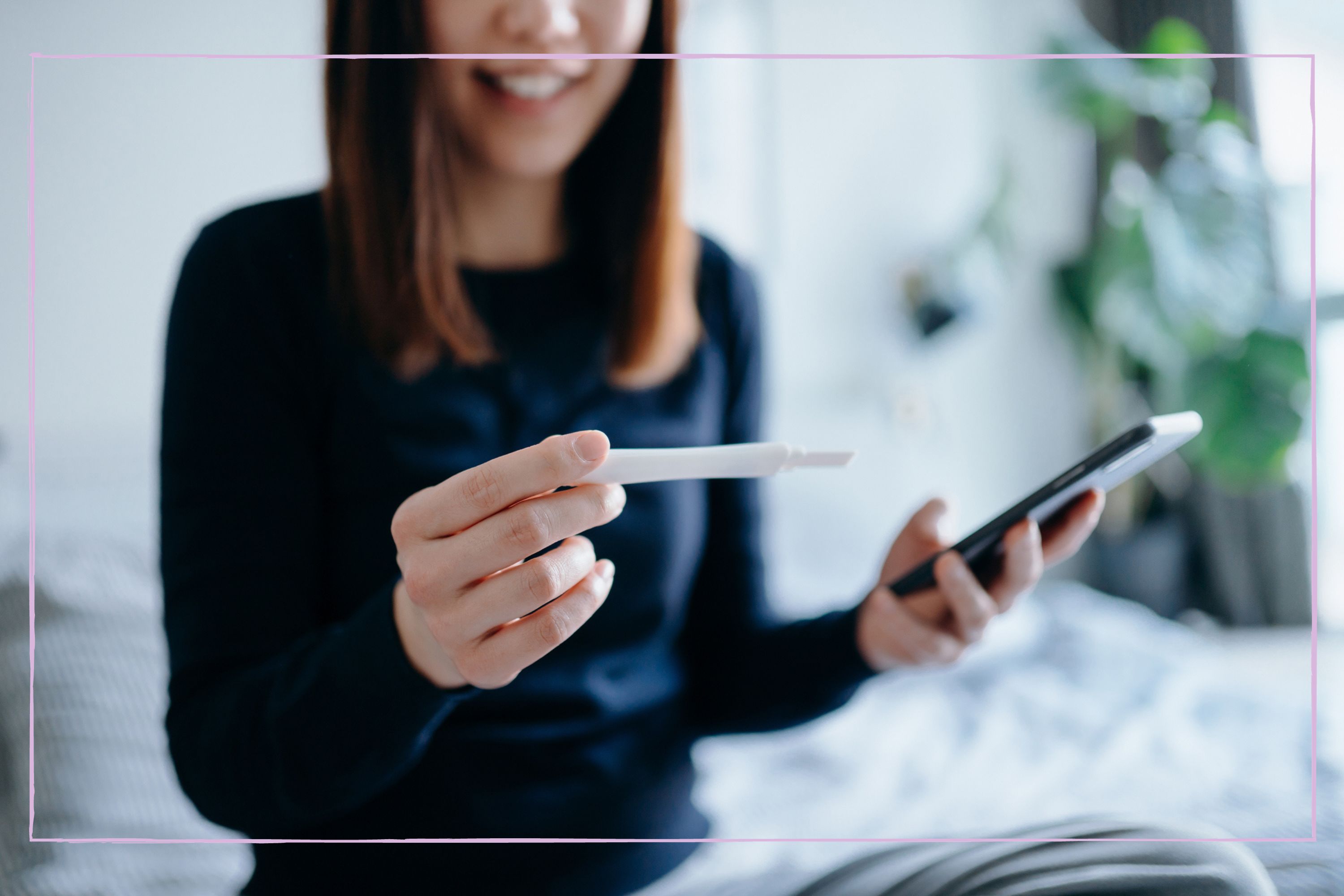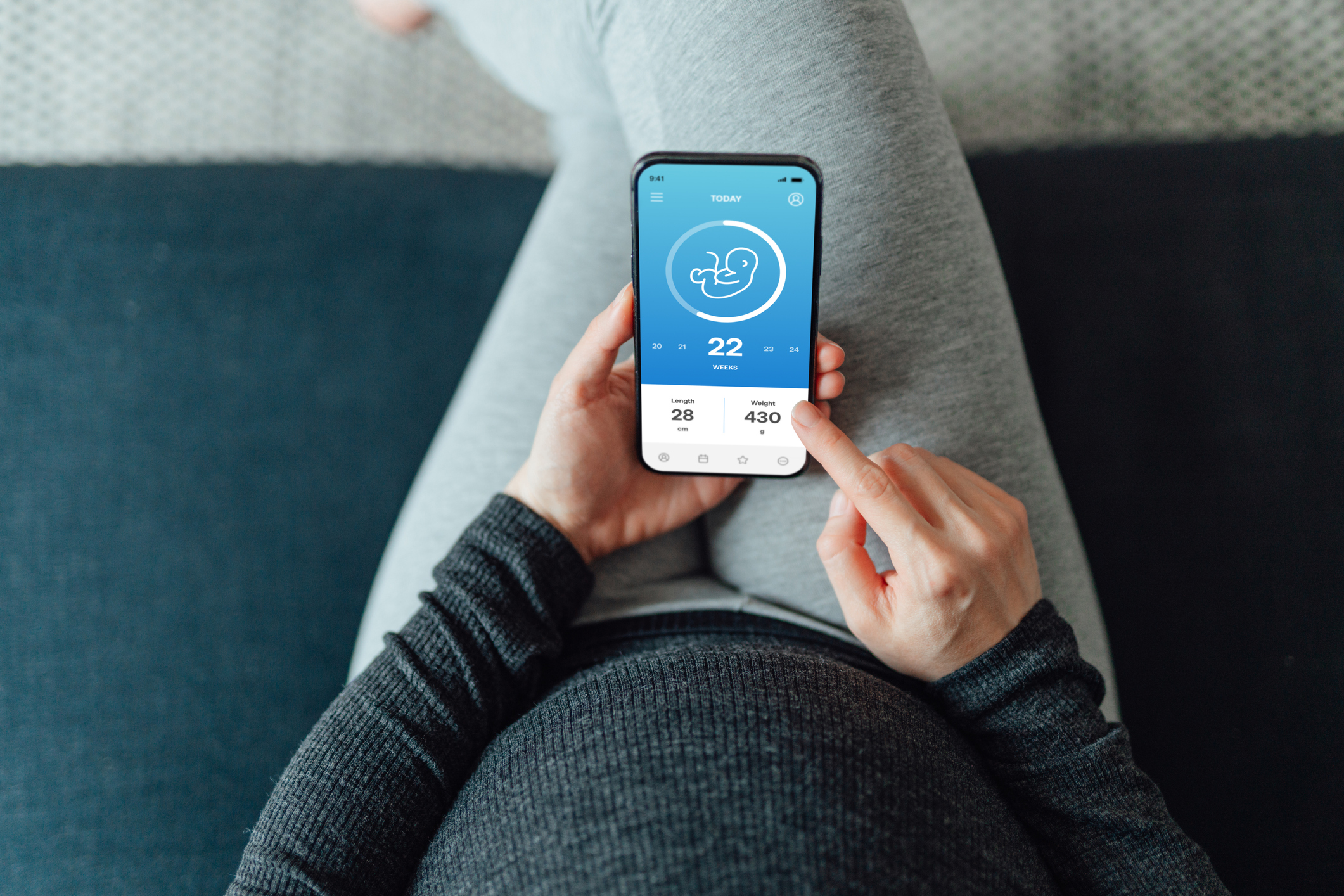I'm a fertility expert and these are the 10 most Googled questions about getting pregnant - #3 is a lesson for 1 in 10 women
The 10 most Googled questions about pregnancy, how many do you know the answers to?


The 10 most Googled questions about getting pregnant have been revealed and answered by fertility experts - but how many do you know the answers to?
Whether you're thinking of starting a family, having another baby and looking for how to increase fertility or have no intentions of getting pregnant then you might want to take note as fertility experts have shared the 10 most Googled questions about getting pregnant and some of the answers might surprise you.
Did you know that around 20 per cent of women aged 18 - 40 are unaware of the impact of age on fertility? A further 1 in 10 do not know that having sex before ovulation (not after) can increase the likelihood of getting pregnant. So clinical embryologist and fertility coach Sandy Christiansen and fertility expert Tess Cosad answer the 10 most Googled questions about getting pregnant, to close the fertility knowledge gap.

Sandy Christiansen, MSc, BSc, ESHRE Certified Clinical Embryologist, HCPC registered Clinical Embryologist and Fertility coach. Sandy has a broad knowledge and understanding of IVF and laboratory procedures. When qualifying for the ESHRE she acquired a vast knowledge in pre-treatment investigations, hormone stimulations and genetics.
10 most Googled questions about getting pregnant:
1. Can you get pregnant while pregnant?
Sandy Christiansen, embryologist and fertility coach at Béa Fertility tells us, "The simple answer is no. Superfetation, getting pregnant while already pregnant, is incredibly rare. In fact, there have only been 10 confirmed cases ever recorded. The reason it is so uncommon is because once you are carrying a fertilised egg, your hormones change which means you will no longer ovulate."
2. Can you get pregnant at 40?
Yes, it is possible to get pregnant at 40. However, fertility does reduce significantly with age. Sandy says, "In women, this is because we are born with a set number of eggs, and so the number of eggs we have decreases as we get older. The quality of a woman's eggs also decreases over time. Most women’s fertility starts to decline in their mid-thirties."
As a result, according to Patient info, 50 per cent of women trying to get pregnant at 40 will conceive naturally within two years, compared to 95 per cent of women under 38. While this does mean the likelihood of getting pregnant declines with age, the good news is that there is still a 50 per cent chance.
Fertility treatments like IVF and Intrauterine insemination (IUI) is a procedure that treats infertility and could increase your chances of getting pregnant at a later age. Freezing your eggs at an early age could also be a good option if you know you want to have children later on. If you are over 40 and thinking about or struggling to conceive, your GP or a fertility specialist are a good first port of call to help get you the information, guidance and support you need.
Parenting advice, hot topics, best buys and family finance tips delivered straight to your inbox.
Male fertility decreases with age, too. This happens as sperm quality declines, which usually occurs when men are around 40-45 years old, according to the British Fertility Society however there are ways to boost male fertility which you can try.
3. Can you get pregnant on your period?
It is very unlikely that you will get pregnant if you have sex while menstruating. This is because your ovulation window is still several days away. Nonetheless, Sandy warned, "For some women, it is still possible. Sperm can live for up to five days inside a woman’s cervix, so your fertile window begins five days before ovulation. Therefore, depending on the length of your cycle, it could be possible to get pregnant if you have unprotected sex while on your period."

4. Can you get pregnant after ovulation?
Getting pregnant after ovulation is possible, but only for 12-24 hours after your egg has been released. Sandy explains, "This is because an egg will die after 12-24 hours if it hasn’t been fertilised."
5. Can you get pregnant while breastfeeding?
While breastfeeding your hormone cycle is different, which means you are less likely to get pregnant. But Sandy warned, "Nevertheless, this doesn’t mean it is impossible. If your hormones reach levels which allow for ovulation to resume, it is possible to become pregnant while breastfeeding. So, if you do think you’re pregnant, it’s important to take a test."
In most cases, the combined pill, contraceptive patch, and vaginal ring can be used to prevent pregnancy whilst breastfeeding from six weeks after you have given birth, according to the NHS. However, Sandy added, "It’s important to check with your doctor or nurse to confirm it’s okay to begin taking contraception, they can advise you based on your personal health and circumstances."

Tess Cosad is the CEO and Co-Founder of Béa Fertility alongside George Thomas. Following an MSc from Imperial College in 2013, Tess founded a B2B marketing agency, Emberson Ventures and the FemTech firm Hers By Design.
6. Can you get pregnant after menopause?
Tess Cosad, fertility expert and CEO at Béa Fertility advises, "Typically, you are unable to get pregnant through intercourse once you are postmenopausal. This is because postmenopausal hormone levels do not allow for ovulation. However, if you have been through menopause and are keen to have a baby, you may still be able to get pregnant through artificial insemination methods like IVF."
7. Can you get pregnant without having sex?
"Yes. Fertility treatments like ICI, IUI and IVF mean it is possible to get pregnant without having sex" Tess clarified. Meanwhile, ResearchersTrusted Source has studied a phenomenon called “virgin pregnancy” to understand why it would be reported. In a survey of 7,870 pregnant women, they discovered that 0.8 per cent of the women (45 total) reported becoming pregnant without having vaginal sex. However, such a study has limitations, as it relied on people to answer themselves. However, the researchers did note various cultural and religious expectations in the mix (like chastity pledges and lack of sexual education), as well as varying definitions of what “sex” meant. Therefore, these numbers don't represent a true picture of the frequency of fertilization without penetration. But despite this, some women involved in the study may likely have defined “sex” as penis-in-vagina sex. So, if the virgins in the study had other sexual contact, it’s possible that sperm somehow made its way up the vaginal tract from other acts.
8. Can you get pregnant from precum?
Yes, it is possible to get pregnant from pre-ejaculate. This is because pre-ejaculate still contains sperm. "If you’re not trying for a baby it’s important to make sure you’re using protection and / or contraception," Tess advised.
9. Can you get pregnant on the pill?
Yes. Contraceptive pills are not 100% effective. Tess warned, "That being said, both the combined contraceptive pill and the progesterone-only pill have a 99 per cent effectiveness rate with “perfect use” and a 91 per cent effectiveness rate with “typical use”, according to NHS data. So, if you’re taking the pill correctly, there’s no reason to worry about an unexpected pregnancy. It is important to note that the effectiveness of emergency contraceptive pills, also known as “plan B”, which contain levonorgestrel, varies from individual to individual. So, it’s important to seek recommendations for usage based on your specific needs.
10. Can you get pregnant with the implant?
Essentially, no. Pregnancy is incredibly rare whilst using an implant for contraception. Tess explained, "If implemented correctly, the implant - a thin rod which is inserted into your upper arm by a medical professional, which releases progestogen into your body - is more than 99 per cent effective according to NHS Inform. Less than 1 in 1,000 women who have the implant as contraception for three years will become pregnant.
In other family news, did you know divorce after a baby is more common than you may think (and we totally get why) - here are 12 reasons why relationships breakdown and my partner doesn't want a baby but I do: We share 5 reasons why they might not be ready and the expert-led replies for you to try.

Selina is a Senior Family Writer for GoodtoKnow and has more than 16 years years of experience. She specialises in royal family news, including the latest activities of Prince George, Charlotte, Louis, Archie and Lilibet. She also covers the latest government, health and charity advice for families. Selina graduated from the University of Sheffield in 2006 with a degree in Journalism, and gained her NCTJ and NCE qualifications. During her career, she’s also written for Woman, Woman's Own, Woman&Home, and Woman's Weekly as well as Heat magazine, Bang Showbiz - and the Scunthorpe Telegraph. When she's not covering family news, you can find her exploring new countryside walking routes, catching up with friends over good food, or making memories (including award-winning scarecrows!)